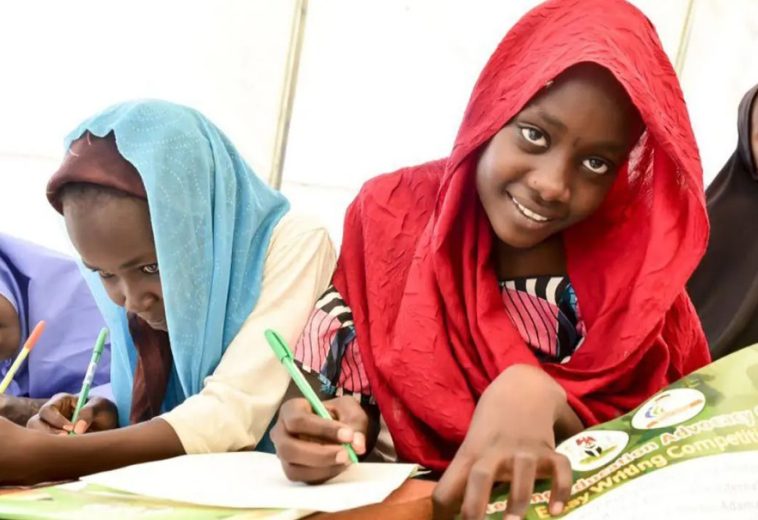In 2022, Ghana faced economic challenges due to domestic imbalances and external shocks, resulting in currency depreciation, inflation, and declining investor confidence. The World Bank’s Economic Update reveals deepened fiscal vulnerabilities, projecting economic growth to slow to 1.5% in 2023 and remain at 2.8% in 2024, with recovery expected by 2025.
Managing external debt is a critical aspect of achieving stability. Ghana has been proactive in negotiating favorable terms with creditors and seeking international support to alleviate debt burdens. By adopting responsible borrowing practices and strengthening debt management strategies, the country aims to prevent debt-related challenges from hindering its economic progress.
This funding series endorses targeted reforms such as enhancing the generation of domestic revenue, managing expenditures effectively, ensuring the stability of the financial sector, eliminating obstacles to private investment, stabilising the financial and operational aspects of the energy sector, fortifying the nation’s social protection system, and integrating climate adaptation and mitigation into various policies.
According to Honnorable Ken Ofori-Atta, Minister of Finance for Ghana, “The Government of Ghana remains committed to restoring macroeconomic stability and to the implementation of lasting reforms to set the economy on a path of strong long-term sustainable growth and transformation. The disbursement of this $300 million Development Policy Financing, the first in a series of three, will play a vital role in easing Ghana’s fiscal constraints, sustaining the momentum of economic recovery, and protecting the poor and vulnerable.”
In the medium-to-long term, strategic policy actions may involve directing investments towards agricultural research and technology transfers. These initiatives aim to boost productivity, lower production costs, and enhance the overall quality and safety of food. Given the challenges posed by climate change, the government must invest in climate-smart agriculture initiatives that empower farmers to navigate changing weather patterns, thus promoting a sustainable and climate-resilient agriculture sector.
Apart from supporting increased domestic food production, policies should also focus on fostering effective integration with global food supply chains. Programmes can be designed to encourage regional and global trade, aiming to enhance the availability and affordability of food by eliminating barriers to trade, promoting regional integration, and enhancing market transparency. Moreover, policies addressing market distortions such as subsidies, taxes, and price controls can contribute to improved market efficiency and reduced food waste. Overall, a comprehensive and evidence-based policy approach is essential to ensuring food security and sustainable agriculture in the face of evolving global challenges.
Ashwini Sebastian, Senior Agricultural Economist, emphasised the need for policymakers to adopt evidence-based strategies to address the long-term impact of inflation on food security. Particularly relevant for many farming households, policies should aim to alleviate various constraints faced by farmers as they adapt to global demand and seize market opportunities.
Ghana, historically dependent on the export of commodities such as cocoa and gold, is working towards diversifying its economy. Efforts to promote sectors like manufacturing, technology, and services are underway to reduce vulnerability to fluctuations in global commodity prices. By fostering a more diverse economic base, Ghana aims to enhance resilience and promote long-term stability.
The Ghanaian government has prioritised fiscal discipline as a cornerstone for economic recovery. By implementing reforms to streamline public spending and improve revenue collection, the government aims to reduce budget deficits and create a more sustainable fiscal environment. These measures include enhanced tax administration, subsidy reforms, and efforts to curb corruption, ensuring that public funds are allocated efficiently.
World Bank Vice President for Western and Central Africa, Ousmane Diagana, stated that “restoring fiscal and debt sustainability, bolstering growth prospects, curbing inflation, and protecting the most vulnerable—measures supported by this financing—are urgent priorities for Ghana. They are also essential steps to allow the country to attract more foreign investment, revitalise its domestic private sector, build resilience against climate change, and improve the quality of life of its people.”
Ghana’s performance under the programme has been positive, meeting quantitative objectives and implementing structural reforms despite a challenging global economic environment. Economic indicators such as growth, inflation, fiscal and external positions, international reserves, and exchange rate volatility show signs of stabilization. The programmeme prioritises protecting the vulnerable, doubling benefits under the targeted cash transfer programmeme, increasing budgetary allocation for the School Feeding Programme, and enhancing financial resources for the National Health Insurance Scheme.
To achieve macroeconomic stability in Ghana, a multifaceted approach is essential. The government should focus on prudent fiscal management, emphasising budget discipline, efficient public expenditure, and revenue mobilization. Monetary policy, including inflation targeting and interest rate management, plays a crucial role in maintaining stability, along with efforts to stabilise the exchange rate.
Structural reforms, such as economic diversification, infrastructure development, and improvements in the business environment, are necessary for long-term resilience. Effective debt management, social safety nets, and political stability contribute significantly, while attention to external sector dynamics, including trade policies and foreign exchange reserves, is vital. Ultimately, a comprehensive strategy tailored to Ghana’s specific context is essential, requiring collaboration between the public and private sectors as well as a commitment to good governance and transparency.


